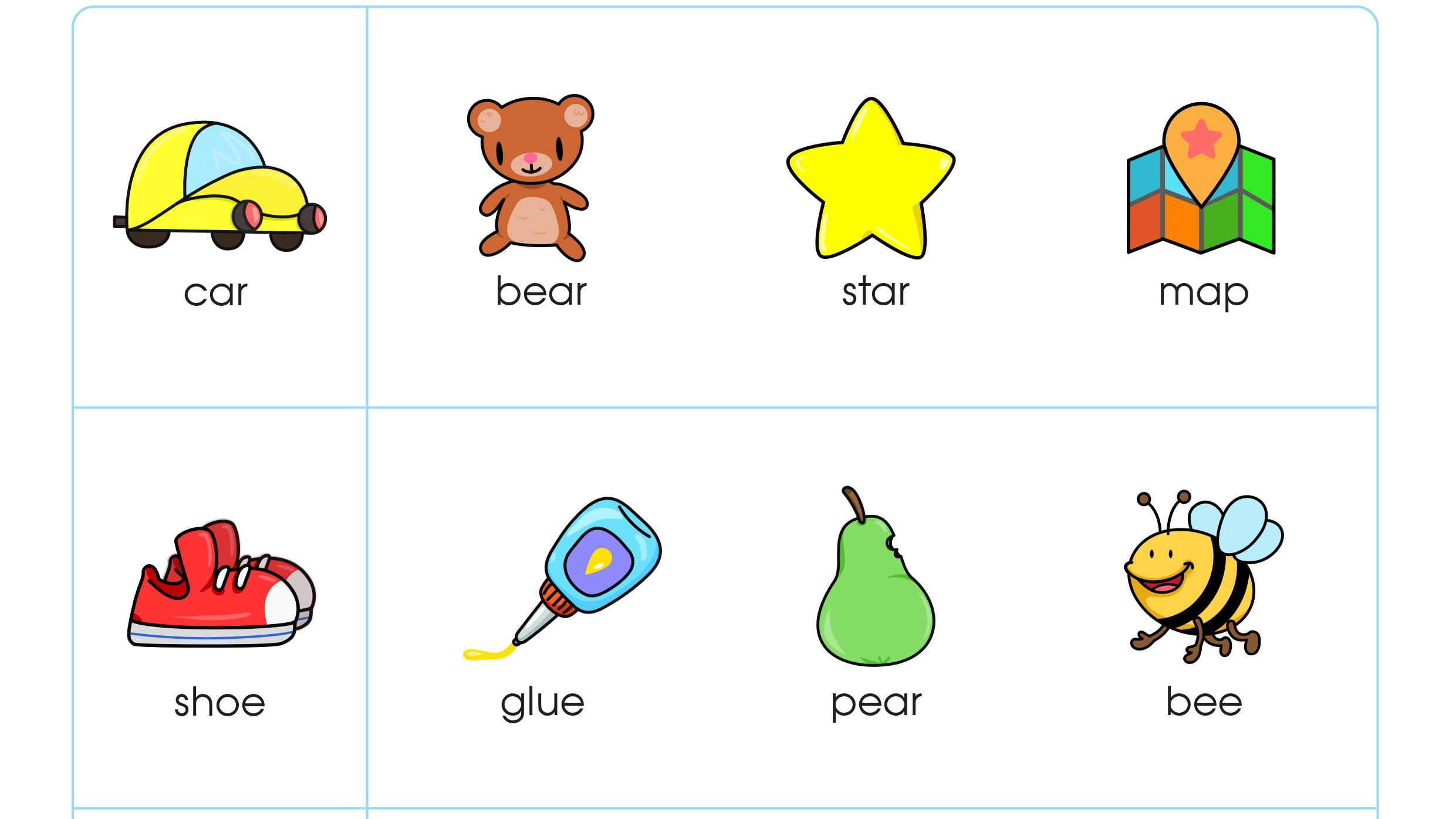Reading comprehension Normal Rhyming Words Worksheets for Ages 4-7
6 filtered results
-
From - To
Boost your child’s reading skills with our engaging Reading Comprehension Rhyming Words Worksheets for ages 4-7. These fun and educational printables are designed to enhance early literacy by focusing on rhyming words through relatable stories and exercises. Each worksheet helps improve phonemic awareness, vocabulary, and reading comprehension, turning learning into an enjoyable experience. Tailored for young learners, our colorful and interactive resources make it easy for kids to grasp essential reading concepts while practicing critical thinking skills. Ideal for both classroom and at-home learning, these worksheets are a fantastic way to foster a love of reading from an early age.
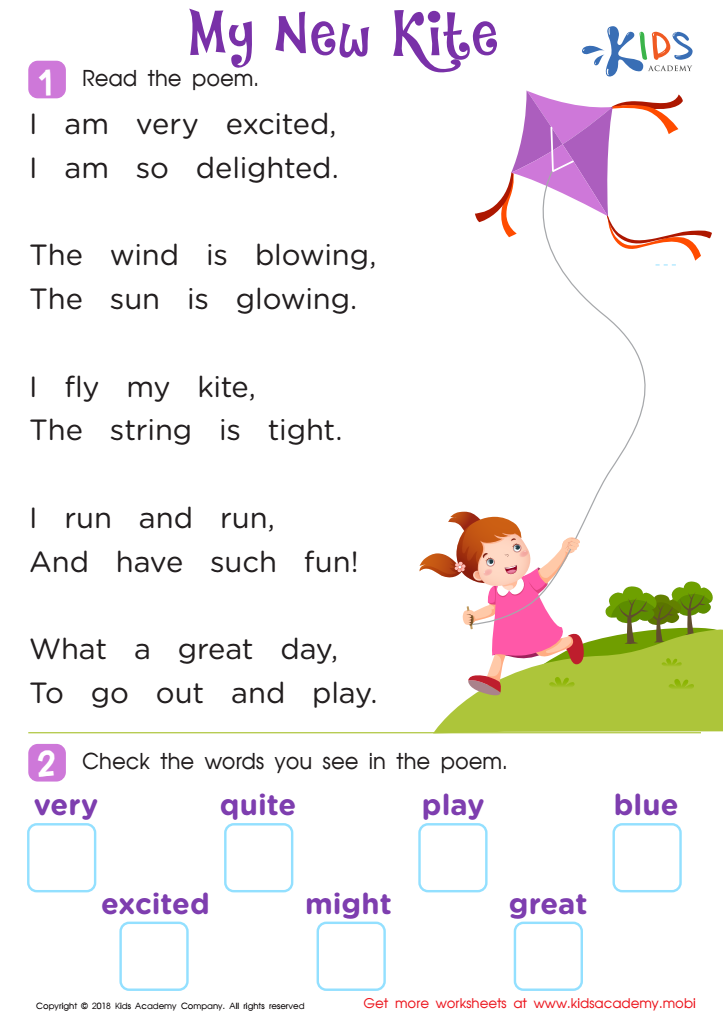

Poem: My New Kite Worksheet


Rhyming Words Rhyming Worksheet


First Words: Picture Rhymes Worksheet
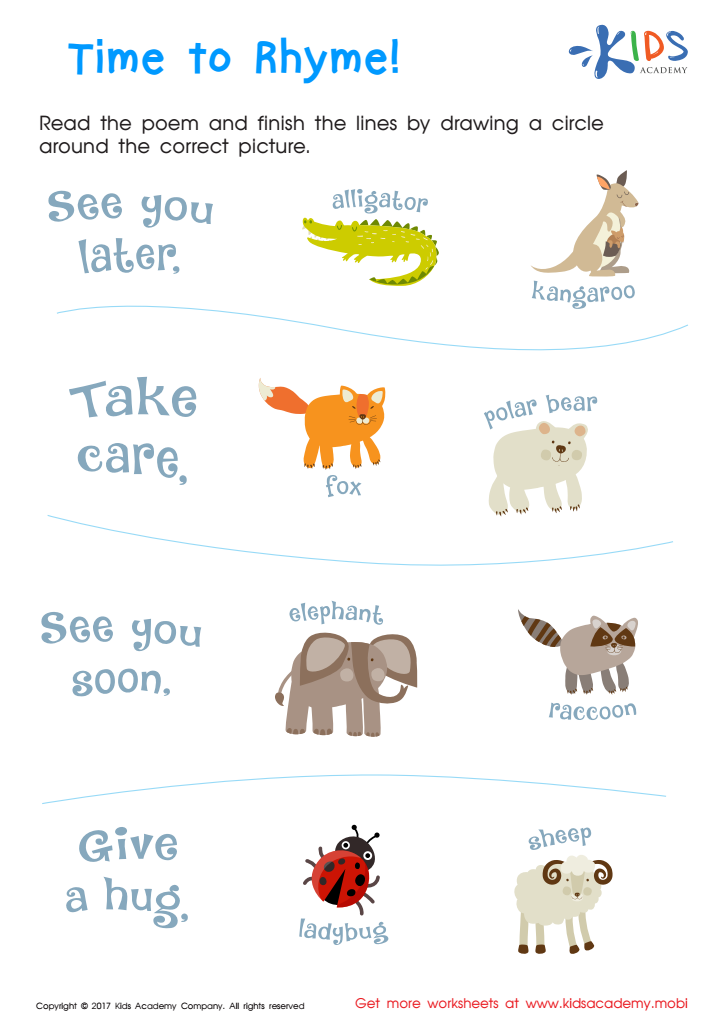

Time to Rhyme Rhyming Worksheet
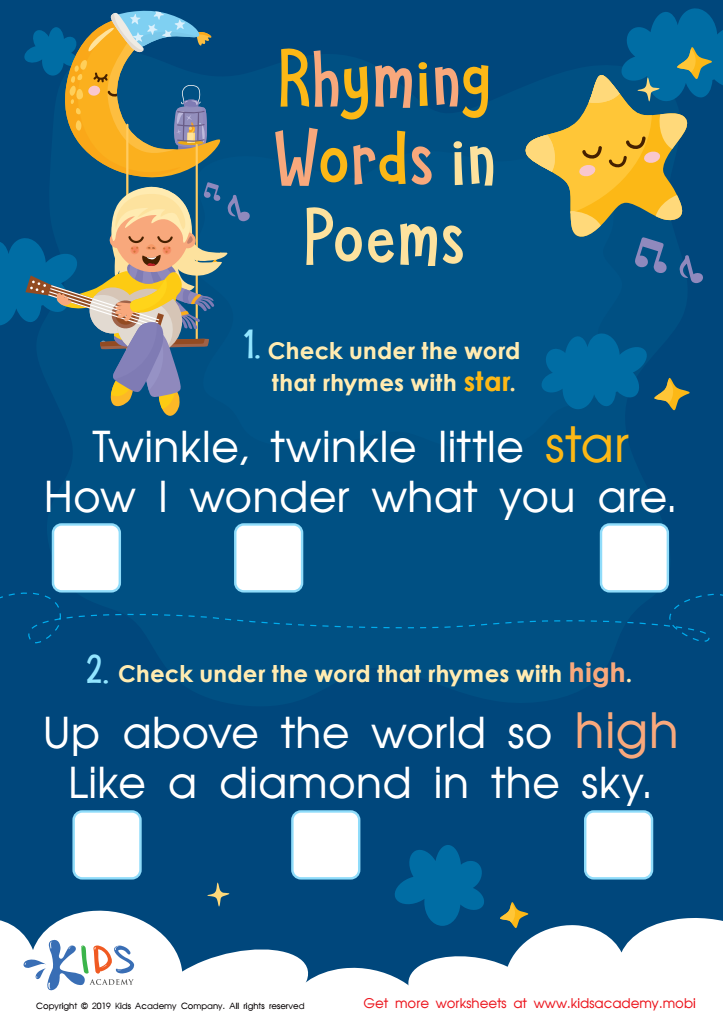

Rhyming Words in Poems Worksheet
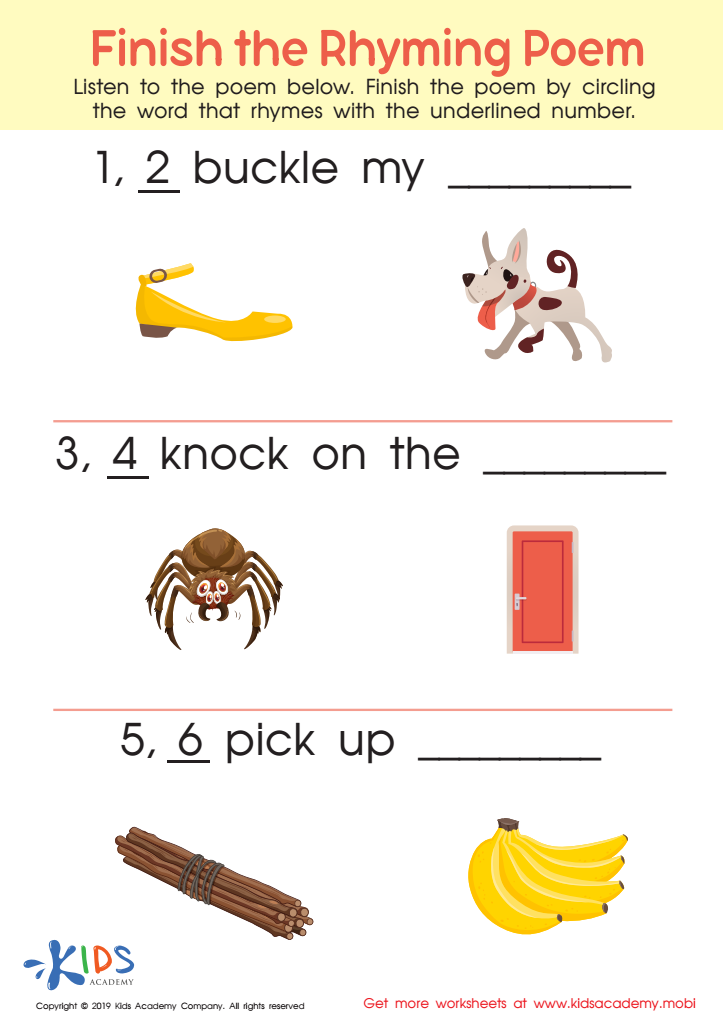

Finish Rhyming Poem Worksheet
Reading comprehension is a fundamental skill pertinent to academic success and overall cognitive development, making it essential for parents and teachers to prioritize it even from ages 4-7. At this young age, children are in a critical period of language acquisition, and normal rhyming words can significantly enhance their reading comprehension skills.
Introducing normal rhyming words captures young learners' attention and makes learning more engaging and enjoyable. Rhyming helps children recognize sound patterns and phonemic structures, which are building blocks of language. This early phonemic awareness contributes directly to the ability to decode written words and understand their meanings, boosting both reading fluency and comprehension.
Furthermore, mastering rhyming words helps enhance memory and recall, as rhymes create predictable patterns that are easier for children to remember. This memory boost facilitates recognizing and understanding new words, thus expanding vocabulary. Rhyming also stimulates creativity and imagination, encouraging children to draw connections between different concepts and improving their overall cognitive flexibility.
In essence, integrating rhyming words into early reading activities nurtures a foundation of linguistic abilities and comprehension that will support children's ongoing education. Parents and teachers who incorporate rhyming in reading instruction foster a lifelong love of reading, establish strong literacy skills, and ultimately help children succeed academically and beyond.
 Assign to My Students
Assign to My Students




.jpg)


